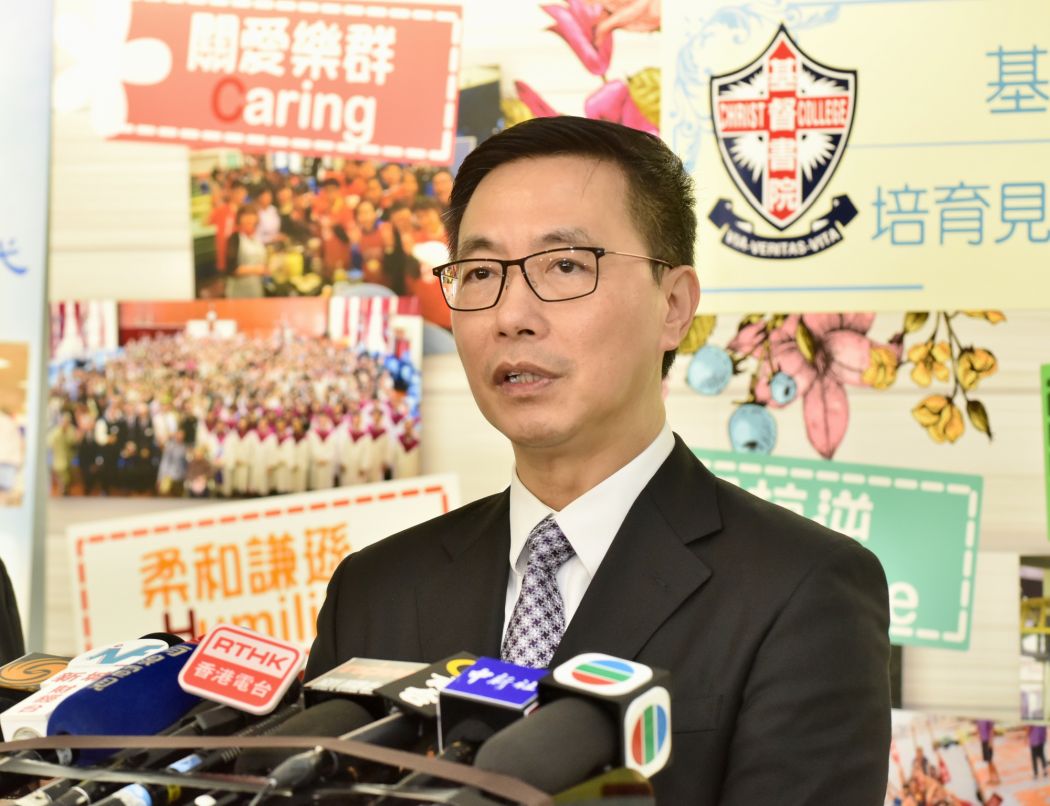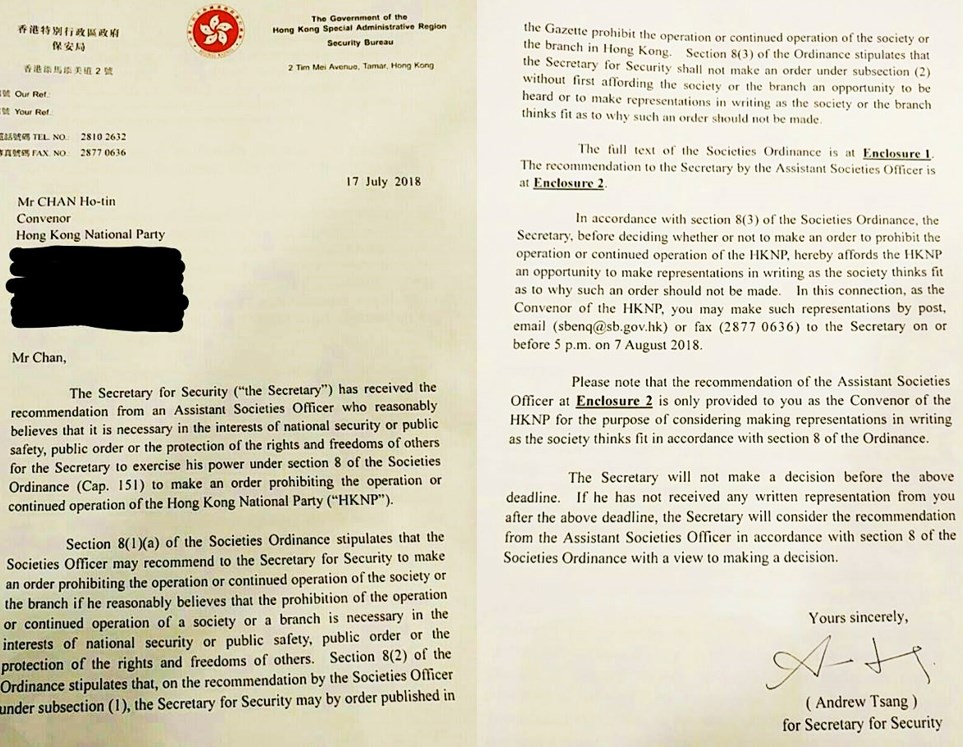Students have no need to discuss Hong Kong independence, Education Secretary Kevin Yeung has said.
Security Secretary John Lee said on Tuesday that the pro-independence Hong Kong National Party has 21 days to justify why it should not be banned, citing a recommendation from the police assistant societies officer on the grounds of national security and public safety. It is the first time since the city’s 1997 Handover to China that the section of Societies Ordinance has been used to ban a party.
Asked will there be any legal consequences if students form groups to discuss Hong Kong independence, Yeung said it was difficult for him to give a general answer.

“Hong Kong independence is not a legal matter – to put it simply, schools should not spend too time discussing it,” Yeung said after an event on Wednesday.
“Our stance is always clear. There is no need to discuss Hong Kong independence in schools. On the student-level, there is no need to proactively discuss Hong Kong independence.”
Yeung said that, if students have questions about the issue of Hong Kong independence, schools and teachers have a responsibility to explain clearly that Hong Kong has always been a part of the country.
“[They should teach] the spirit of the Basic Law and the Constitution, so that students can reach a conclusion that Hong Kong independence is something impossible,” he said.

Democratic Party lawmaker James To has said only a very small minority joined events of the Hong Kong National Party – which only made speeches and did not conduct any violent actions. He said he did not understand how the group harmed national security, unless there was evidence to suggest that the group “bought ten nuclear bombs.”
The Societies Ordinance was first legislated in 1911 to limit anti-colonial clashes after the Qing dynasty was overthrown. Since then, it has been used to control triad organisations.
According to the ordinance, any group of more than one are considered societies, regardless of whether they have registered with the police or not. “National security” was defined as “the safeguarding of territorial integrity and the independence of the People’s Republic of China.”

If the party is banned following a decision by the security secretary, any member of an unlawful society, or anyone who attends one of their meetings or gives them money, could be subjected to a HK$50,000 fine and two years of imprisonment.
However, the party can still appeal to the chief executive and the executive council.
